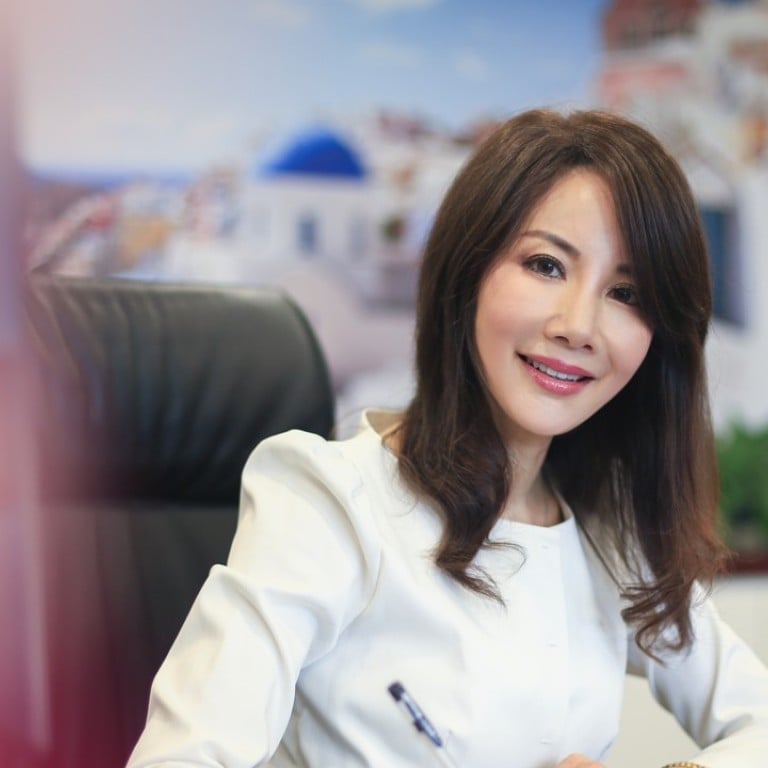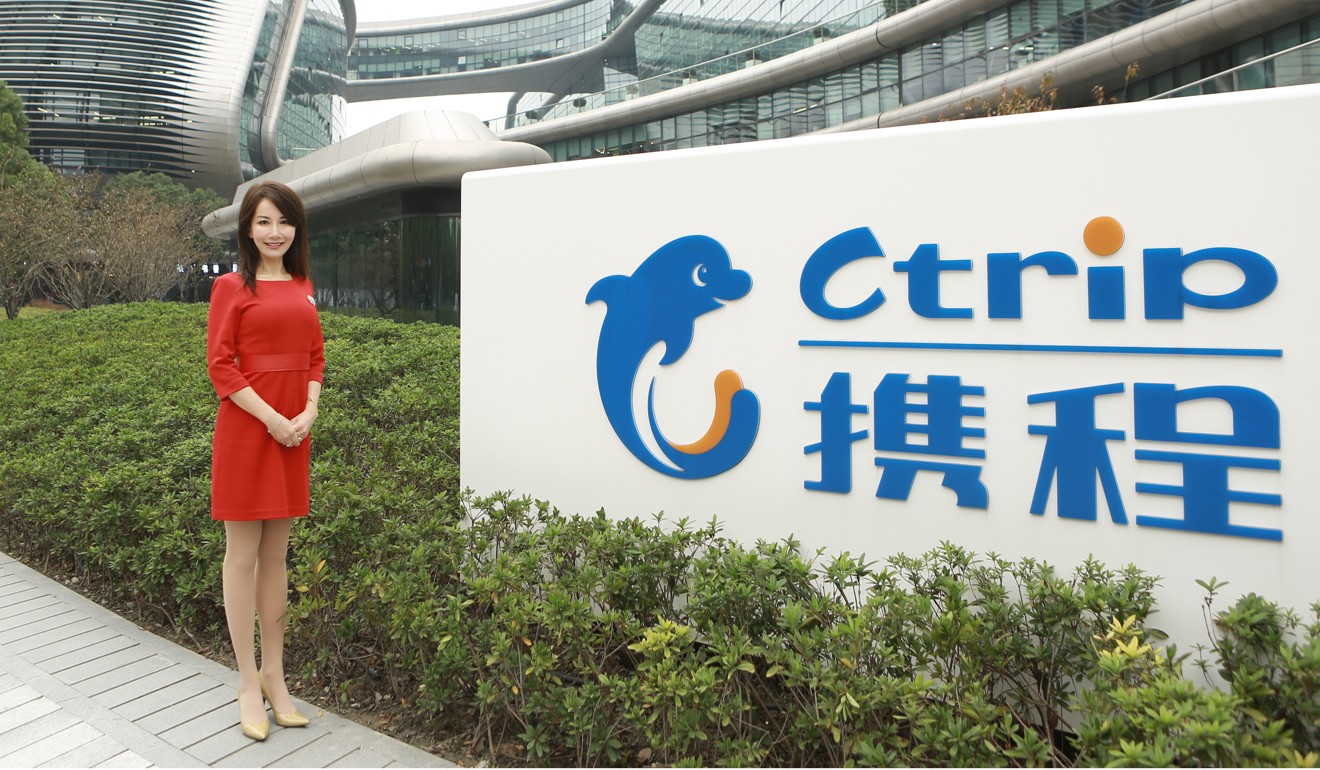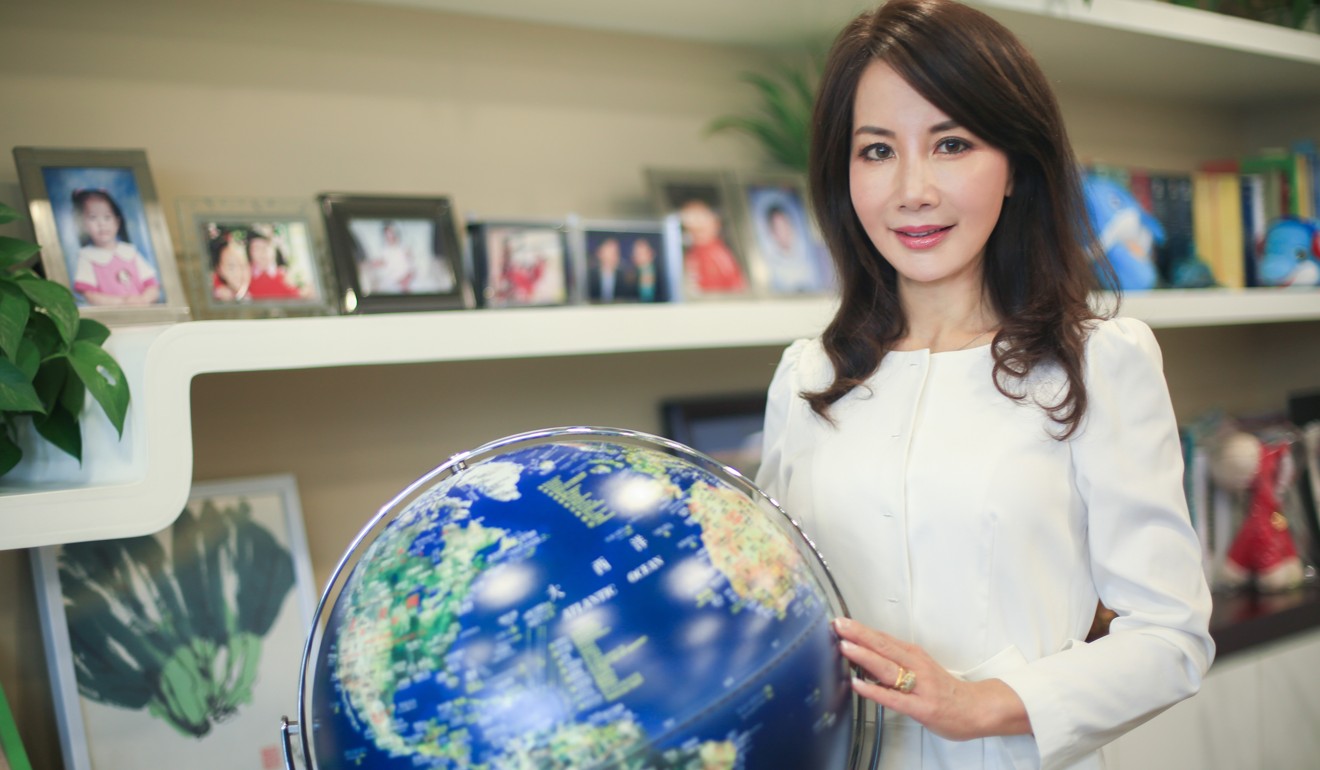
Exclusive | Ctrip’s female CEO on gender inequality and fighting internet platform companies
Ability to attract top talent seen as mission critical for specialist companies like Ctrip, which are facing increasing competition from ‘do everything’ platforms like Meituan
Jane Sun may be the head of a Nasdaq-listed Chinese tech company valued at US$23 billion, but she still sometimes feels slighted in the company of other CEOs.
While attending a recent CEO conference in Silicon Valley, “people assumed I was there to accompany my husband”, said the 49-year-old head of Shanghai-based Ctrip, Asia’s biggest online travel platform. On a separate skiing trip to Canada, fellow skiers asked Sun’s husband what line of work he was in, but not her.
“It’s not discrimination, but subconsciously you are someone’s wife,” Sun said in a recent interview at Ctrip’s Zaha Hadid-designed headquarters, which have a sweeping view of the city’s Hongqiao airport.

Such experiences have only strengthened her resolve to introduce female-friendly policies to the Ctrip workplace. The company is only the third in the world behind Facebook and Apple, she says, to reimburse female executives for egg freezing procedures so they have the choice of delaying childbirth till their 30s or 40s. Despite criticism from some quarters that the practice promotes work over family, Sun said the policy has been well received at Ctrip.
Another company policy encourages working mothers who are breastfeeding to bring their babies on business trips.
The ability to attract top talent, whether male or female, is now mission critical for specialist companies like Ctrip, which are facing increasing competition from “do everything” platforms such as Meituan-Dianping, which is backed by internet giant Tencent Holdings. Meituan handled 22.7 million room bookings in March, surpassing for the first time Ctrip, which processed 11 million in the same month, according to statistics provider TrustData. Fliggy, the travel service arm of Alibaba Group, parent of South China Morning Post, saw bookings of 3 million room nights in the month.
With online platforms currently only reaching 10 per cent of China's travel industry, there is huge market potential for the remaining players that have survived the intense competition of recent years, according to Vicky Wu, Hong Kong-based analyst with ICBC International Research.
“For Alibaba and Meituan, their respective focus is on e-commerce and local lifestyle services. They may not go as deep or expansive as Ctrip does in the travel sector,” Wu said. “As its hotel and ticketing businesses are now steady, Ctrip is more focused on business travel and tourism.”
The competition got even tougher this month after Booking Holding, owner of online brands such as Priceline and Agoda, invested US$500 million in Didi Chuxing, China’s largest ride-hailing platform. As part of the deal, Didi customers can book hotels through Booking.com or Agoda, as well as hail rides using Booking’s platforms.

Sun believes specialisation is an effective weapon to fend off competition from the platforms that do everything. “All our investments are travel related,” she said. “As a service industry, it takes a lot of expertise.
“Amazon’s best talent must be put into e-commerce, and while Google can excel in front-end search, its competitive edge can hardly extend to back-end fulfilment of services,” she said. “Companies need to know where their strength is,” adding that Amazon has failed a number of times in its efforts to get into online travel.
Ctrip’s proportion of female managers is above the national average. While 50 per cent of the company’s workforce is female, 40 per cent of its middle-level management and one third of senior executives are women, according to Sun.
That compares with an average of 37 per cent of female management in mainland Chinese companies, the second highest in Asia after Malaysia with 38 per cent, and ahead of Singapore’s 30 per cent and Hong Kong’s 29 per cent, according to the 2018 Hays Salary Guide.
“China has an old saying that women can hold up half of the sky, which I find to be true,” Sun said.

The CEO tells her female employees that they don’t have to show the “appearance of overtime” that is often expected at tech companies. “You don’t need to prove your diligence by staying in office and working in front of your bosses.”
Sun typically reaches the office at 7am, where she often starts the day with a meeting with Ctrip chairman James Liang Jianzhang, before diving into a 12-hour work schedule. She takes work home and spends “an hour or two” with family before getting on to conference calls with the US, where the company is listed.
“With technologies evolving, one can work at home,” Sun said. “It shouldn’t be a choice of ‘work or family’, but ‘work with family’. As children grow older, working mums will also be their role models.”
On overseas trips, she often does a same-day turnaround if it is a meeting in the region and would often take the overnight flight home instead of spending the night at a hotel.
Sun studied at China’s elite Peking University and University of Florida. Before joining Ctrip, she worked as an audit manager with KPMG in Silicon Valley and later as head of the external reporting division at Applied Materials until her husband’s job in venture capital brought them back to China in 2005. That is when she joined Ctrip as chief financial officer.
Sun later served as co-president and chief operating officer before moving into the CEO role two years ago in what has become a management partnership with Liang, who is a co-founder of the company.

Liang said that while Ctrip has a number of competitors, it is the only mainland Chinese platform focused on outbound travel, which accounts for 40 per cent of its air ticketing volume.
“We’re more global, and we’re expanding horizontally … [which is] good for frequent travellers or high-end travellers. They want to be associated with one travel app, but for those are not travelling frequently, they may prefer an app with various services,” he said. “The travel market is a global market. If you’re just doing one market, you can’t realise the economies of scale to compete. Travel will be a winner takes all game in the end.”
To that end, in January 2016 Ctrip announced it had taken full control of its arch rival Qunar, which it had invested in a few months earlier. The deal ended a bitter subsidy war and kicked off a round of other investments, including US$180 million into India’s largest online travel agency MakeMyTrip, 3 billion yuan (US$442.5 million) into China Eastern Airline, and US$1.7 billion for UK-based price comparison travel search site Skyscanner.
Ctrip was also an early stage investor in Grab, Southeast Asia’s answer to Uber, and Boom, a Denver-based supersonic jet start-up, and has stakes in online travel agent Tongcheng-eLong, tourism group BTG Hotels and homestay platform Tujia, China’s equivalent to Airbnb.
“What Ctrip aims for is a big company’s focus [on core competency] as well as the sense of passion and ingenuity shared by small firms,” Sun said. “Small firms may throw around investors’ money, but not us. However, we also need to remain as agile as they do.”
That agility is demonstrated during customer service calls, which need to be answered within 20 seconds, and problems solved within two minutes, according to Sun. “When there was a boating accident in Thailand, we found our customer contacts within seconds and reached out to [affected travellers] to offer free accommodation relief. No tech company can solve that type of problem.”
Despite the easy traffic boost brought about by acquiring other platforms, Sun does not believe any business can grow into a “super travel company” in the long term using that approach.
“Alibaba is likely to put their most talented staff in payment and e-commerce, but for Ctrip more than 7,000 of our engineers worldwide are all thinking about how to improve the travel experience,” she said. “That is why we are very confident.”
As for whether Ctrip would consider investing in space travel, given that it has put in money into a supersonic jet start-up, Sun considered it for a brief moment before saying it was “probably too early at this point.”
“But we can sell tickets to the space tours.”
Additional reporting by Iris Deng


